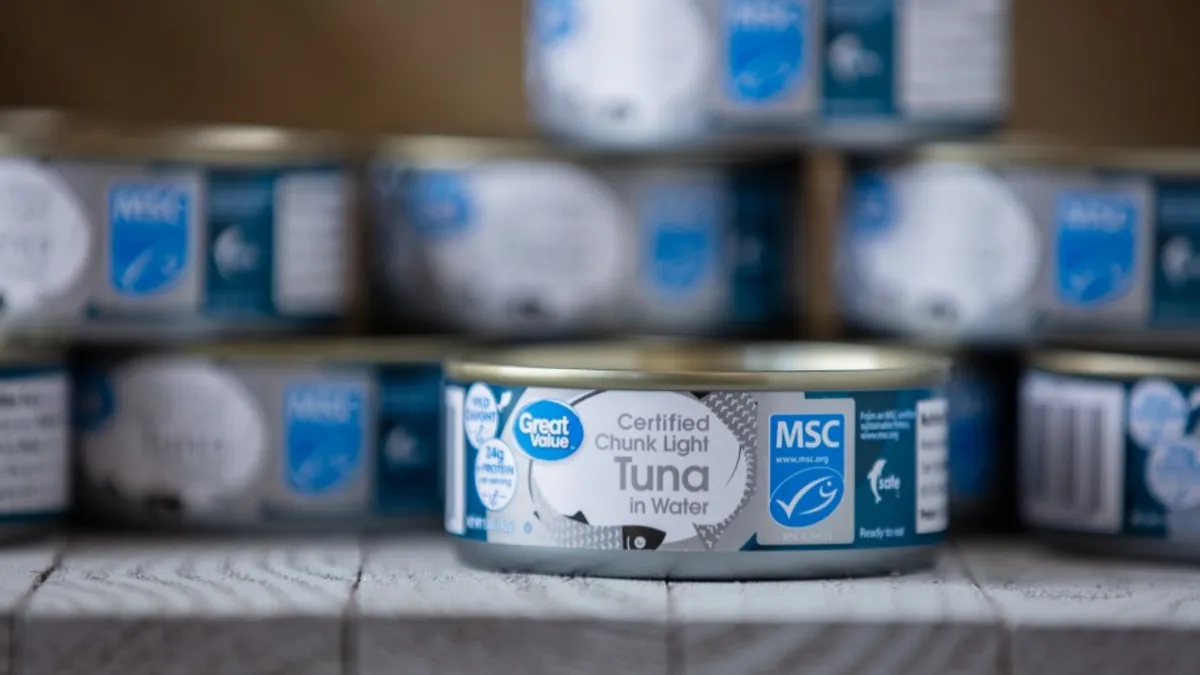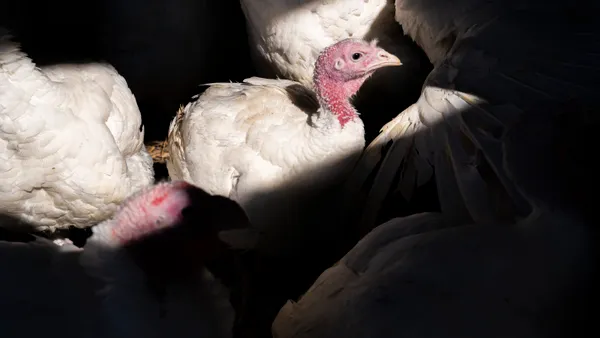Dive Brief:
- Walmart and Sam’s Club have announced an enhanced seafood policy meant to improve transparency and data collection in the tuna supply chain.
- The policy ensures that, by 2027, Walmart U.S., Walmart Canada and Sam’s Club tuna suppliers will source exclusively from vessels that have 100% observer monitoring and source from fisheries that use zero high seas transshipment unless the transshipment activity is covered by 100% observer monitoring.
- The updated policy is the latest effort by Walmart to boost its seafood sustainability practices as other food retailers do the same.
Dive Insight:
Walmart’s enhanced seafood policy builds on the goal that, by 2025, all Walmart and Sam’s Club shelf-stable private and national brand tuna will come from a source certified by the Fishery Improvement Project or Marine Stewardship Council, according to the press release.
The enhanced seafood policy addresses accidental catch of non-targeted species, illegal fishing and abandonment of fishing gear issues, Walmart’s press release stated. The retail giant noted it prioritized two issues: observer monitoring and zero high seas transshipment without observer monitoring.
Observer monitoring surveys commercial fishing activities and reports key information on numerous data points, including bycatch, according to the announcement.
Observer programs, which can be managed by individuals or with electronic monitoring devices such as artificial intelligence, ensure “cost-effective transparency in supply chains that will ultimately lead to better outcomes for the ocean and for people,” Michael Griff, director of seafood markets at World Wildlife Fund, said in a statement.
Meanwhile, transshipment — moving fish from one fishing vessel to another while at sea or in port — that happens at sea can prevent accurate data collection about seafood products, leading to illegal, unreported or unregulated fishing activities, according to information from the International Seafood Sustainability Foundation cited in the announcement.
Walmart’s updated seafood policy aims to address this by ensuring in-port transshipment and high seas transshipment are covered by 100% observer monitoring to increase transparency and promote best practices on tuna fishing vessels. This action will also preserve biodiversity as well as support quality working conditions for workers on fishing vessels, Walmart said.
Due to systemic issues like illegal and destructive fishing, more than one-third of the world’s fisheries are operating at unsustainable levels, per research by the Food and Agriculture Organization of the United Nations.
More retailers are tightening regulations aimed at ensuring sustainability in the seafood they stock. In November 2021, Hy-Vee debuted a new code of conduct for its seafood suppliers focused on bettering human and labor rights and ensuring legal and transparent harvesting and production practices. In 2020, Giant Food joined the Ocean Disclosure Project, a project which gives retailers a platform to share insights and information about seafood sourcing, and Publix linked up with salmon farmer Atlantic Sapphire to sell farm-raised salmon from Miami, Florida.












